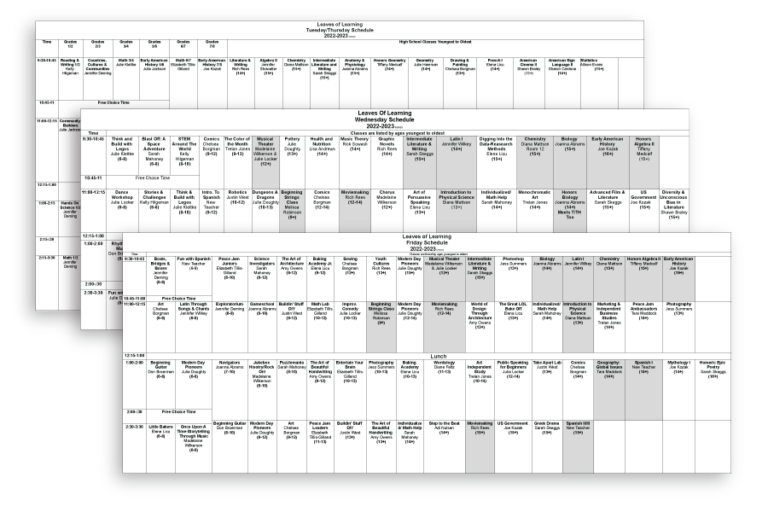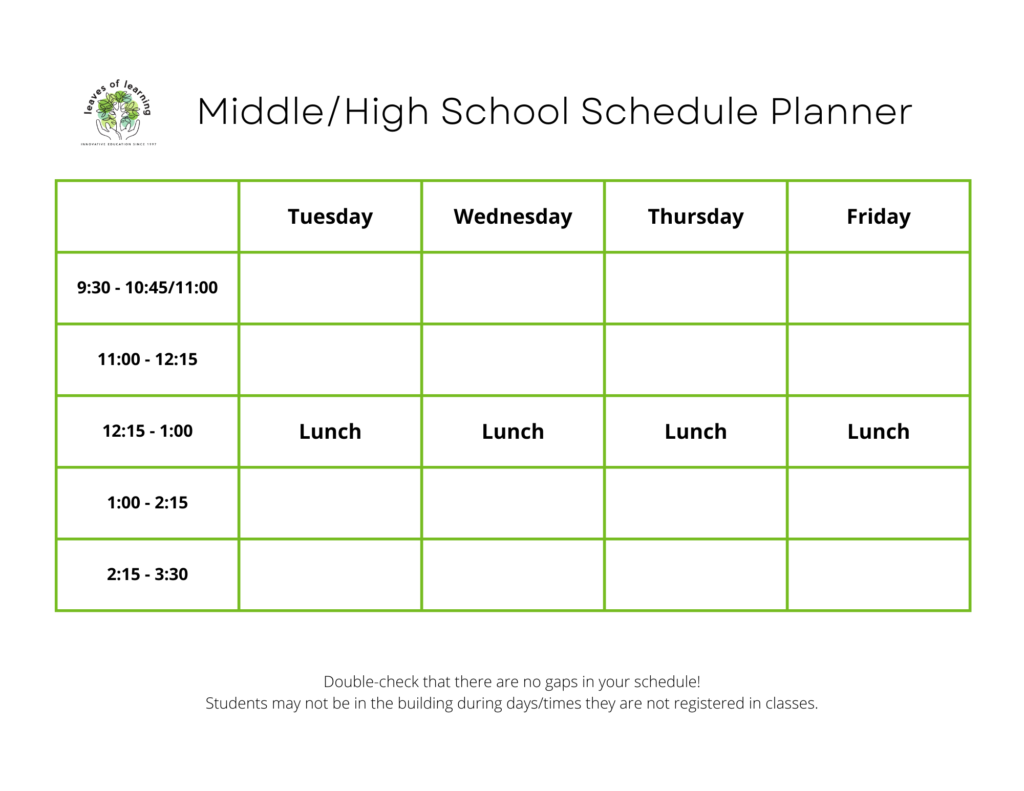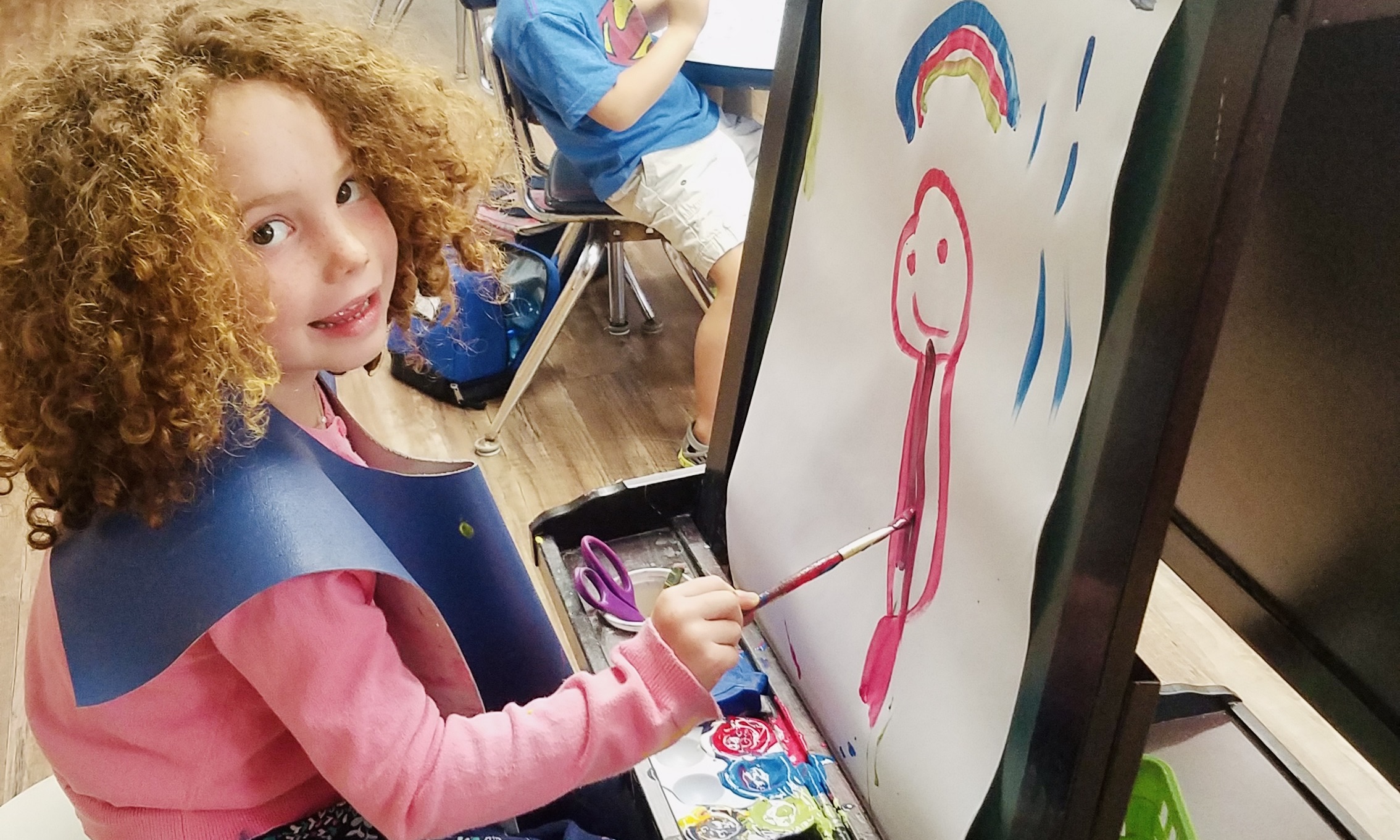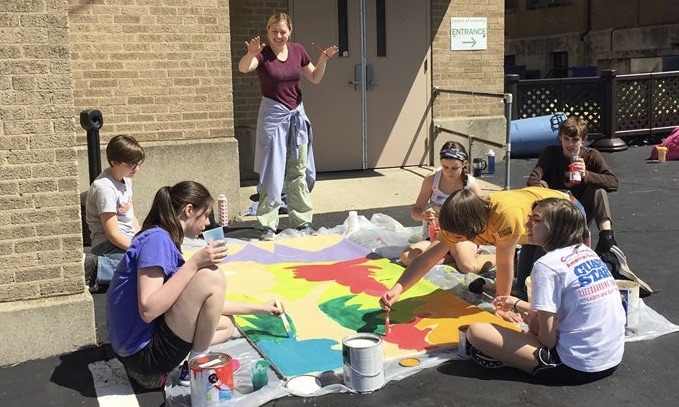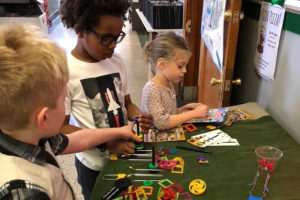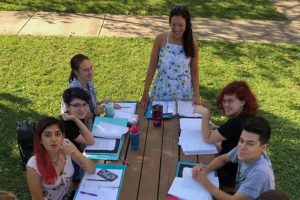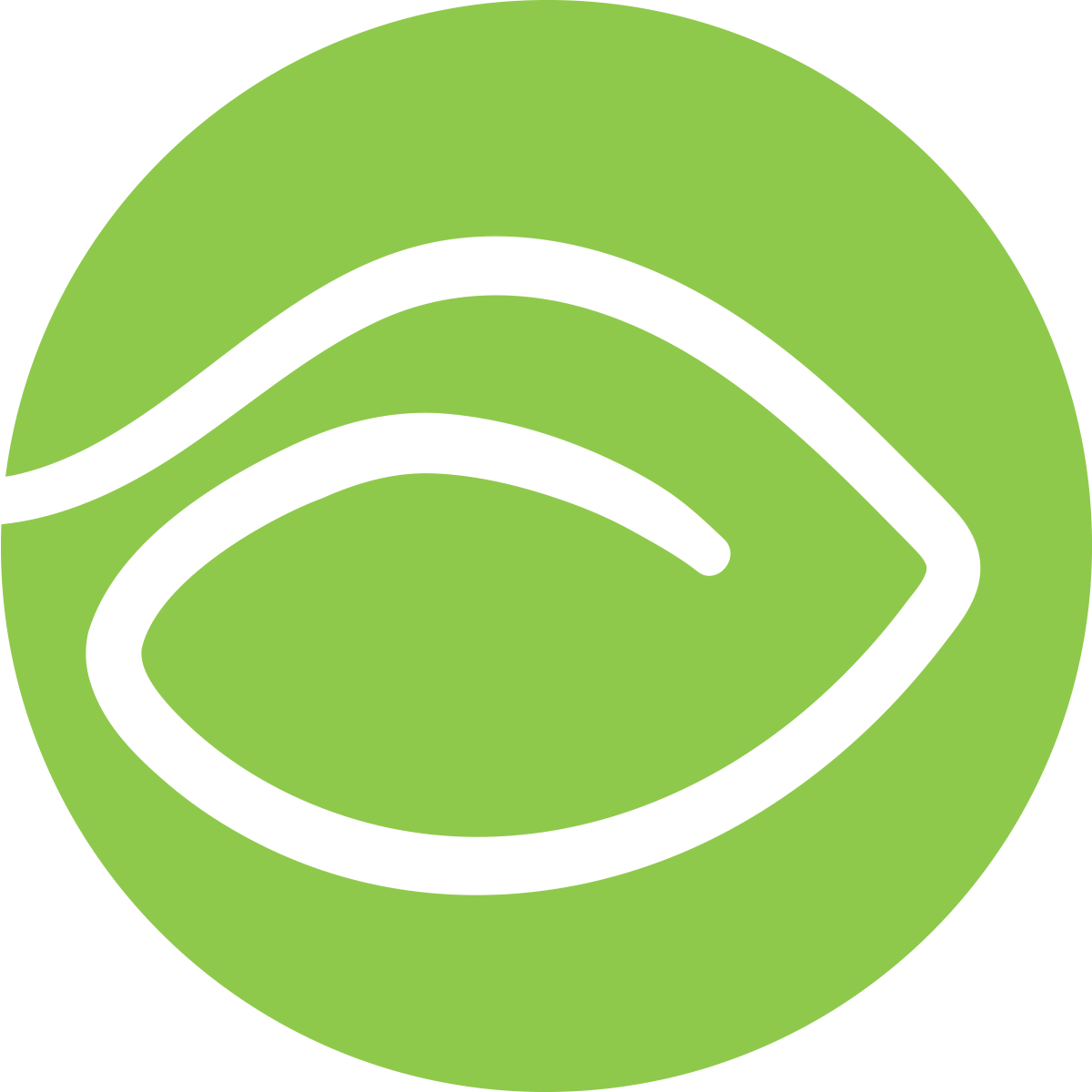Classes, Schedules, & Schedule Planners

Choosing classes is the fun part!
Our wide variety of classes encourages students to explore their passions and discover new ones. We recommend getting your children involved in choosing their classes; they often have interests that surprise us! Download the schedules, schedule planners, and class catalog (below) to get started.
Outside Work Expectations (Homework)
Teachers assign relevant outside-of-class assignments to provide students with a depth of knowledge not possible through in-class work alone. Completion of these assignments is integral to success in the class.
We ask students and parents to take the responsibility for making sure this work is completed, and we ask that each student work to the best of his/her potential. Homework expectations can be adjusted to meet the individual abilities of each of our students, and homework must be completed to remain in the class.
Please make sure you and your child are willing to make the time commitment specified in each class description. Some of our classes require little or no outside work. For these classes, any outside work is optional.
Outside work expectations are defined below:
Minimal ~ 0-1 hours/week
Moderate ~ 1-2 hours/week
Significant ~ 3+ hours/week
Choosing classes FAQ
Science and history classes are on a topic rotation cycle. Our multi-age classes enable students to be challenged at their own level—through instruction and homework assignments that take into account their abilities and interests.
We advise parents not to automatically assume their child should be in an older group. A child's emotional and social needs are just as important as his or her academic needs. Our small class sizes usually allow us to challenge most students. We rely on our teachers to make group change recommendations.
Students in academic classes have the option to receive a letter grade in addition to the evaluation. While we hope students are motivated by the intrinsic joy of learning, we recognize that for some students, grades can be a motivator. Allowing a choice enables you to make an individual decision for each child and class.

